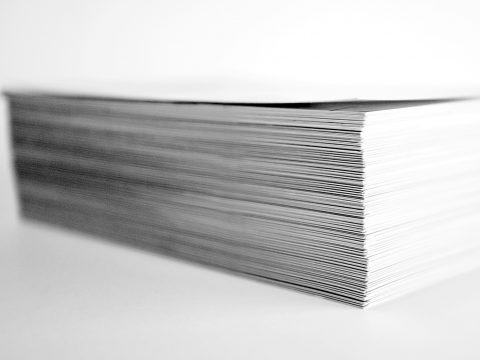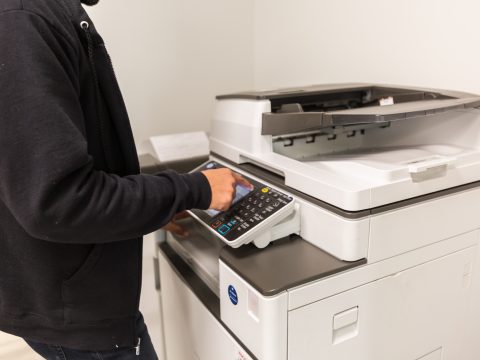- Have any questions?
- 858-757-7574
- support@officespacecopier.com
4 Rules for Leasing a Copier

What is a Letter of Intent? Why Does It Matter?
May 24, 2019
Download the Copier Lease Negotiation Checklist
June 7, 2019
Let’s say you’ve decided that leasing a copier is the right business decision for your company. There are many reasons why this might be the more prudent decision. Office printers and copier machines can be expensive—prohibitively so for startups and SMBs. The average small home office copier machines cost upwards of $1,500, but standard commercial-grade copiers that print 55 ppm average nearly 10 times that ($13,000).
Leasing a copier is a sound decision, and not just for the upfront costs associated with buying. If properly negotiated, leasing affords businesses flexibility, scalability, and peace of mind. Usually ranging from 3 to 5 years, leasing is a prudent decision because it ensures that the business will have essential equipment without risking being stuck with an unnecessary or suboptimal copier.
To make sure that your lease serves you best, here are the Top 4 Rules to play by so that you don’t regret your office copier lease:
1. No Annual Increases
Since one of the biggest benefits of leasing an office copier is controlling costs without paying the premium of renting, it’s crucial to have payment structures that don’t include annual increases to your monthly payments. You wouldn’t lease a car with that clause, so why should a copier be any different?
That machine doesn’t get upgraded every year, but unfortunately, many companies lease copiers with10% annual increases attached. That means the monthly price paid in year one (Maybe it’s $150) could nearly double by year 5.
Before you sign anything, negotiate for a flat rate so that you’re not paying $250 for a machine you thought would remain flat. Non-escalating copier leases do exist.
2. Cross Out the “Evergreen Clause”
This is another pain point that we’ve seen haunt many business owners over the years. They’ve signed a contract that they can’t wait to end. However, there was an “Evergreen Clause” that contractually keeps the lessee (the business owner) responsible for up to 12 months of extra payments.
It works like this: the salesperson presents a contract, and “end of lease” language requires a formal, written notice to end the agreement between the last 120 and 90 days of the lease.
It’s practical for the copier company because many people are used to ending contracts with 30 days of notice—or if they want to renew, they have to do that within 30 days at the end of the contract.
Rule of thumb: never sign a contract with the Evergreen Clause – cross out the terminology.
3. Add a Performance Guarantee
You don’t want to be stranded with an office machine that doesn’t work, especially if you still have months or years left on the lease. Like a car, you would still have to pay for the remainder of the contract even if you return it early.
Without a performance guarantee (you know, like when the machine says there’s a paper jam, but there’s no paper in the machine…), If your copier continues to have technical difficulties and you still have months or years left on the lease your current provider will try to upgrade your equipment early and put the remaining payments into your next agreement. n the performance agreement, make sure it says the company will replace the copier at no additional charge to you for the length of the lease if they can’t repair it properly.
4. Install, Setup, Delivery, and Training Included
If you’re under the impression that this is a given, we’ve known many business owners who were mistaken. Usually, this can be negotiated for without too much trouble, but it is definitely something that should be included in your new copier agreement.
These machines can be complicated, and operating one tricky without the proper training and installation.
Since the office copier solution you choose shouldn’t obstruct or alter more essential business strategies, Office Space Copier is dedicated to transparency and helpfulness. These 4 core qualities of leasing are the bedrock of our leases. If you find yourself wondering what to do instead of bashing your copier because of an unfavorable contract, here’s a quick copier lease guide to help you navigate the process.



